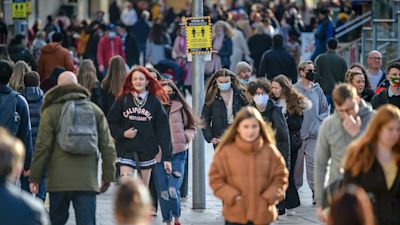Covid: Delta variant now at 488 cases in Wales, with numbers expected to rise

The number of new cases of the Delta variant of coronavirus has risen to 488, according to the latest figures from Public Health Wales.
This is a rise of 173 cases since the last update on 14 June, with every health board in Wales reporting cases of the variant.
The Delta variant of the virus - previously known as the Indian variant - has been confirmed as the dominant strain in Wales.
Numbers are expected to rise further over the coming weeks as health officials say it is easier to catch than the previously dominant Alpha - or Kent - variant.
Wales' health minister said the majority of cases are among young people who have not yet had the vaccine.
Eluned Morgan said: "All adults in Wales have now had an offer of the vaccine and I would urge everyone who has to take it up. Vaccination is the best way to prevent the spread of coronavirus, including this new variant, and prevent serious illness.
"It is also really important to have the second vaccine, which provides increased protection."
On Tuesday, officials confirmed the Delta variant is at the centre of a Covid-19 outbreak in Denbighshire.
Meanwhile, the First Minister is due to announce tomorrow whether or not any further changes will be made to coronavirus restrictions in Wales.
It's thought that concerns over the Delta variant will mean there won’t be any significant easing to rules on mixing indoors.
Elsewhere, no new deaths were reported today, but 140 new cases of the virus were reported.
Dr Eleri Davies, incident director for the coronavirus response at Public Health Wales, said: “We understand people may be concerned at the rise in cases, but there is much we can do to protect ourselves and others.
"It’s so important to take up the offer of both vaccines when you receive it, as the latest evidence shows that Pfizer and AstraZeneca vaccines are both effective against the Delta variant after two doses.
“We are all very familiar with social distancing by now, but, by remaining at least two metres away from everyone else, washing our hands regularly, and wearing a face covering we can keep ourselves and our friends and family safe. The virus disperses in well-ventilated environments, so opening windows and allowing fresh air to circulate is another way to keep ourselves safe.
“If you develop any symptoms, you must self-isolate and get a test if you or anyone in your household develop symptoms."